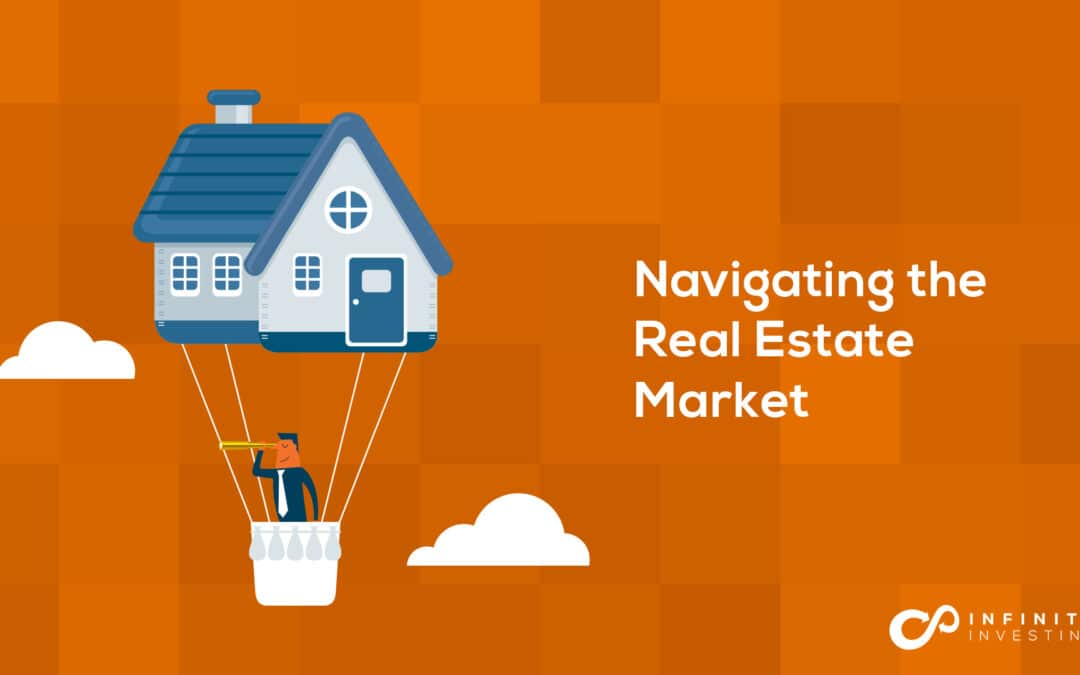
For many new investors, real estate is the simplest place to start. They might already want to own a home, and the investment process can feel more interactive than buying stocks. If you’re looking for a way to start investing, learning to navigate the real estate market could be your best bet.
What Is Real Estate?
Real estate is the buying, selling, and renting of properties, including land, buildings, and homes. The real estate market encompasses residential, commercial, and industrial properties. While real estate agents or brokers typically facilitate real estate transactions, individuals can invest in real estate. If you are looking to make investments, the real estate market is a strong place to begin.
Key Takeaways
- Navigating the real estate market involves considering many factors, including demographics, budget, and location.
- Market research requires physical and online work.
- Once you’ve made an offer, the deal isn’t complete. You’ll need to pay closing costs and get a home inspection.
- Investing in the real estate market offers many benefits, including property ownership and long-term passive income opportunities.
Infinity Investing Featured Event
In this FREE event you’ll discover how the top 1% use little-known “compounders” to grow & protect their reserves. Our Infinity team of experts show you how to be the best possible steward of your finances and how to make your money and investments work for you instead of you working for them. Regardless of your financial situation today, you’ll have a road map to get to where you want to be.
Overview of Navigating the Real Estate Market
If you choose to invest in the real estate market, you’ll want to have a strong sense of what research you need to do before you commit to a property. This article will help you navigate your first real estate investment, particularly if you’re looking at residential homes.
Factors to Consider
Whether you’re entering the real estate market for the first time or you already own a home, you have several factors to consider when purchasing a property. Even if you’re buying an investment property and not the house you plan to spend the rest of your life in, you still need to carefully assess the following before committing.
Location
Location will impact the home you buy no matter what you intend to do with it. The neighborhood should suit your needs or be a desirable rental location. Spend time in the neighborhood and the local community to ensure a home would be a good fit.
Budget
Most investors approach the real estate market with a specific budget in mind. Assess your finances and what you can afford before you begin searching for homes. Your financial information will help you narrow your search.
Demographics
Next, consider the demographics of the area. If you’re buying a single-family home, you might want to buy somewhere with other young families. You can also look into local schools to ensure you’re buying a house in a high-scoring district. You can also check crime statistics to ensure the home you choose is in a safe area.
Needs
The home you buy should meet your needs in terms of lot location, size, and property age. You’ll want to think about the home’s layout, space, and potential for future projects. For example, you might want to purchase a home that has a desirable four bedrooms and three bathrooms. Make a list of any “must-haves” for your new home.
Researching the Market
Buying real estate is about much more than researching individual homes. In fact, you might find more value in researching the market in your area. These are just a few ways to initiate your market research, even if you’ve never purchased a home before.
Use Online Resources
One way to research the real estate market in your area is to use the web. A helpful resource is the National Association of Realtors, which offers information about housing trends, state data, and real estate forecasts. You can also use the U.S. Census Bureau to track data about specific areas of interest.
Obtain Professional Advice
Before you buy a home, you might seek professional advice about investing in the market. An adviser can offer information about the market as well as good investment options in the area. You’ll gain more information about the home-buying process and get advice about the steps you should take before you invest in the market.
Attend Open Houses
The next step involved in your research is to attend open houses. Even if you visit homes you don’t intend to buy, you’ll get an idea of the types of homes on the market and how much they are worth. You’ll also gain insight into remodeling trends.

Making the Offer
Once you’ve done your homework and decided you’d like to buy a specific property, it’s time to make an offer. The financial components of buying a home can be intimidating, but knowing these steps will help you approach them with confidence.
Discuss Financing
You’ll want to get preapproval for financing before you make an offer on a home. If you secure financing ahead of time, you can start the process promptly. Meet with a lender or get your cash together early to avoid a delay in closing the deal.
Negotiate Price
Even if you get financing to cover the entire cost of the home, you can negotiate the price. If the home doesn’t have other bidders, negotiating is simpler. If the home requires repairs or has other needs to become inhabitable, you’ll have even more negotiating power.
Submit Offer
You can submit an offer yourself or through your real estate agent. The seller can accept or reject your offer. As a buyer, you can make an offer on a contingency basis, which means the seller must meet specific requirements or you have the right to back out of the deal.
Closing the Deal
Once you’ve made your offer, you’re in the home stretch. After just a few more steps, you’ll own a home. These last steps can move quickly, but they are still crucial parts of purchasing real estate.
Get Home Inspections
While some sellers perform pre-listing inspections, it’s in the buyer’s best interest to hire an independent inspector to examine the house for issues before buying. The inspector will provide details about the home you might not have known. For instance, the inspection could reveal the home has water damage or a cracked foundation, allowing you to further negotiate the price or pass on the purchase.
Finalize Legal Documents
At this time, you might talk to your lawyer or real estate agent about the documents you need to sign. A legal professional can explain the details and ensure you are aware of any potential issues, including easements.
Closing Costs
Finally, you’ll handle the down payment and closing costs. You’ll need enough cash to cover these amounts, which is one more reason why securing financing early is crucial. Once you’ve paid, you’re the home’s owner. You might be able to take physical possession of the house right away or on a previously agreed-upon date.
Buying real estate offers several benefits. Not only will you have a piece of property to call your own, but you can also use your property as an investment. Once you purchase one home, you will find it easier to navigate the process again in the future. You might be able to find opportunities to fix and flip a home or rent one out on a long-term basis.
Infinity Investing Featured Event
In this FREE event you’ll discover how the top 1% use little-known “compounders” to grow & protect their reserves. Our Infinity team of experts show you how to be the best possible steward of your finances and how to make your money and investments work for you instead of you working for them. Regardless of your financial situation today, you’ll have a road map to get to where you want to be.

